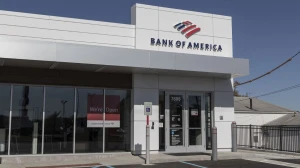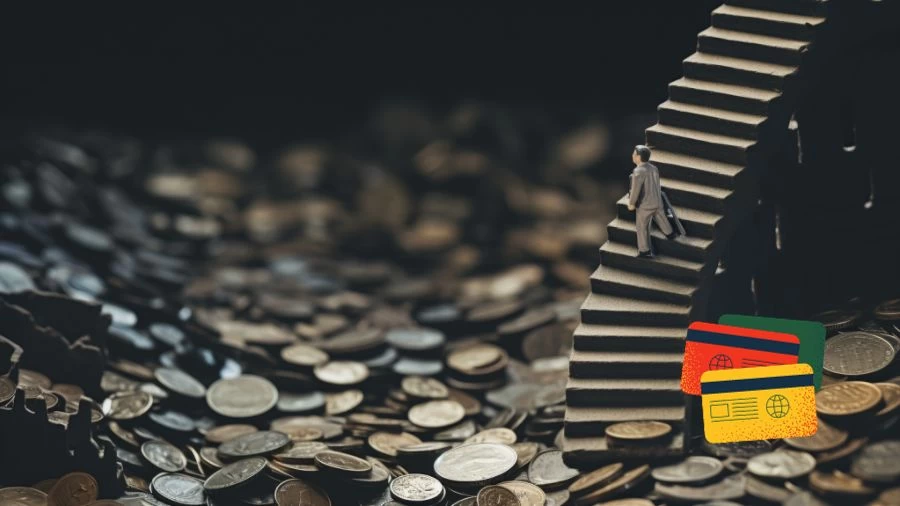
Why Did My Credit Score Drop?
To maintain a good credit score, check for negative items, ensure accurate credit reports, pay bills on time, use credit responsibly, watch for credit limit changes, and minimize frequent credit applications.
by Sai V
Published Nov 07, 2023 | Updated Nov 07, 2023 | 📖 4 min read
Why Did My Credit Score Drop?
Learn about the factors responsible for credit score decreases and find ways to safeguard and enhance your credit health.
Check for Derogatory Remarks on Your Credit Reports
Review your credit reports for any negative information such as bankruptcies, collection accounts, or foreclosures. These derogatory remarks can significantly lower your credit score, and they typically stay on your reports for several years.
Verify the Accuracy of Your Credit Reports
Regularly check your credit reports from major bureaus for inaccuracies. Mistakes can occur, leading to potential credit score drops. Dispute any errors you find to ensure your credit report reflects accurate information.
Assess Your Payment History
Examine your payment history closely. Missed or late payments can significantly damage your credit score. Ensure that you pay your bills on time to prevent negative marks on your credit report.
Review Your Credit Utilization Ratio
Evaluate your credit utilization ratio, which measures the amount of credit you're using compared to your total available credit. A high ratio, especially above 30%, can lower your score. Try to keep this ratio low by using credit responsibly and paying down existing balances.
Monitor Changes in Your Credit Limits
Keep an eye on your credit limits. If a creditor reduces your limit, it can increase your credit utilization ratio, affecting your score negatively. Communicate with the lender or pay down your balance to counteract this impact.
Minimize Credit Applications
Be cautious when applying for credit. Each application results in a hard credit check, which can temporarily lower your score. If you need to apply for credit, try to do so within a short time frame (14-45 days) for related loans, like mortgages or auto loans, to minimize the impact on your credit score.
Why Did My Credit Score Drop After Paying Off Debt?
Paying off debt can lower your credit score due to reduced credit utilization and closed accounts. Understanding these factors is crucial for managing your financial health effectively.
- Credit Utilization Ratio: Closing a paid-off credit card reduces your total available credit, raising your credit utilization ratio if balances remain unchanged or increase.
- Average Age of Accounts: Closing older accounts lowers the average age of your accounts, potentially decreasing your credit score.
- Credit Mix: Closing a specific type of credit account can reduce diversity in your credit mix, affecting your score negatively.
- Account Closure Impact: Closing a significant or sole credit card or loan account erases its positive payment history, impacting your credit score.
- VantageScore vs. FICO: Different credit-scoring models treat closed accounts differently, leading to varied impacts on your credit score.
Navigating the complex landscape of Finance has never been easier, thanks to MarketsHost’s extensive content library that simplifies even the most intricate financial concepts.
What Are Ways to Boost Your Credit Score?
To enhance your financial health, it's crucial to focus on three key actions that can significantly boost your credit score.
Timely Payments for a Strong Foundation
Making payments on time is paramount. Ensure all bills and loan installments are paid promptly, as payment history holds the most weight in your credit score. Set up reminders or auto-payments to prevent missed deadlines. Communication with creditors is crucial if facing difficulties, as adjusting payment schedules can prevent defaults and maintain your score.
Keep Accounts Open for a Positive Impact
Even after clearing debts, retain open accounts. Older accounts enhance your credit score, so closing them may decrease your score. Additionally, open accounts contribute to a higher total credit limit, which improves your credit utilization ratio. Keeping a low ratio is key to a positive score, making account closure a decision that demands careful consideration.
Exercise Caution with New Credit Accounts
Approach new credit accounts judiciously. Each application results in a hard inquiry, slightly lowering your score. Avoid rapid succession of new accounts, signaling financial instability. Monitor your credit utilization, ensuring new accounts don't strain existing balances. Responsible handling of new credit minimizes negative impacts on your overall credit profile.
Why Did My Credit Score Drop - FAQs
1. Why did my credit score drop after paying off debt?
Paying off debt can lower your credit score due to reduced credit utilization and closed accounts.
2. How can I boost my credit score?
Focus on timely payments, keeping accounts open, and being cautious with new credit accounts.
3. What is a credit utilization ratio?
It measures the amount of credit you're using compared to your total available credit.
4. Why is my payment history so important for my credit score?
Payment history holds the most weight in your credit score calculation.
5. How long do derogatory remarks stay on my credit report?
Derogatory remarks like bankruptcies and collections typically stay on your report for several years.




